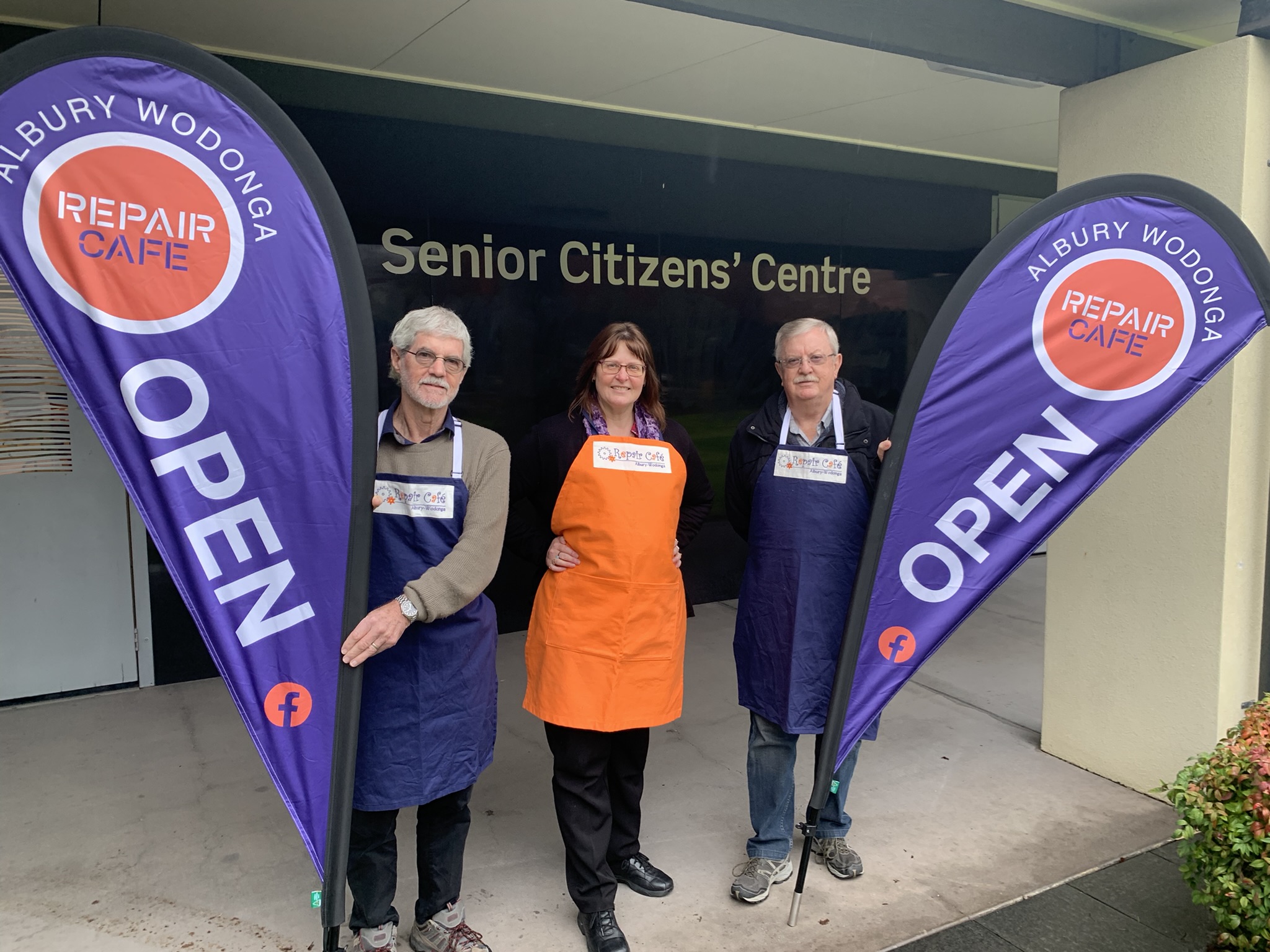By Liz Hammond, Repair Café Albury-Wodonga volunteer
The first Repair Café was established in Amsterdam in 2009, with the aim of reducing the amount of ‘stuff’ being dumped in landfill. After the idea spread across the Netherlands it became a world-wide movement.
The first Australian Repair Café was established in Sydney in 2015 and there are now over a hundred Repair Cafés throughout the country. One of the first to open nationally was in Albury-Wodonga in 2015. It operates in the Senior Citizens’ Hall in Havelock Street, Wodonga.
On the first Saturday of each month, apart from January, at about 9:30 am, the Repair Cafe comes alive, as volunteers arrive and prepare for another busy session. Tables are set up, one for each type of activity and volunteers unpack their tools. In the kitchen, water is heated for tea and coffee, and we cut up the cakes and slices donated by our generous sponsor, Kooka Brothas’ Patisserie of Wodonga.
At 10:00am, we open to the public. As visitors arrive, the receptionists help them to sign in and then assess what needs to be repaired. Some items such as electrical goods cannot be repaired. Although we do our best to repair battery operated devices, we don’t touch electrical items that plug into 240 volt mains power, as none of our repairers are licensed electricians, so our insurance would not cover the work they do. We mend clothing but don’t do clothing alterations, as our aim is to reduce the amount of stuff going to landfill and making alterations won’t help to achieve that. We also have a limit of three items per visitor so that we can help as many people as possible.
Each item is weighed so that at the end of the session, we can tally up the total weight we’ve prevented from going into landfill. We also run a program of salvaging old laptops that would otherwise go to e-waste. If we can get them into good working order, we give them to community support groups who pass them on, for example, to recently arrived refugee families. Halve Waste, part of Albury City Council’s recycling system, subsidises our operations in recognition of the work we do.
The most popular services are clothing repairs and sharpening of garden tools and kitchen knives, but we also repair jewellery, toys, wooden items and battery-operated devices. We encourage visitors to watch their items being repaired so that perhaps in future they can do these jobs themselves. For example, we recently had a young mother bring in a stuffed toy that was giving way at the seams. The volunteer demonstrated how to hand sew it back together and encouraged the visitor to have a go herself. When she left, she was brimming with confidence and eager to go home and mend other toys. Sometimes the volunteers demonstrate skills that are becoming lost arts, such as darning holes in socks, using a wooden ‘mushroom’. Often, a visitor will bring in an item that has been passed down within their family, such as an old piece of jewellery or furniture and it can be quite gratifying to see their pleasure in having that item restored to good condition.
For many visitors, the Repair Cafe is a place to chat to others, to drink tea, and to watch what goes on. Even if you don’t have an item that needs to be repaired, you’re very welcome to pop in for a visit.
Image: Volunteers Bruce Nulty, Allison Bowman and Bill Meek welcome visitors to the Repair Café. Photo supplied.

